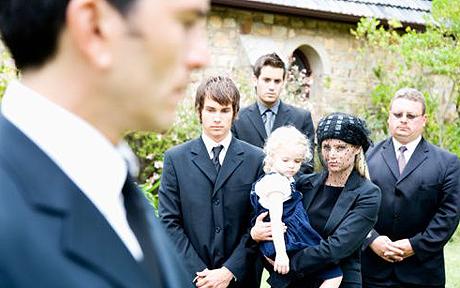It’s a Family Affair
Good people sometimes do not-so-good things, especially in family contexts. As an attorney practicing in the area of estates and trusts, frequently I hear family tales of deception, misappropriation and undue influence. Family dysfunction seems to be human nature, and Jewish tradition is no exception. The question is what we make of this very human reality.
Joseph, eleventh son of Jacob, is known in the Talmud as HaTzaddik (“the righteous one”) (Yoma 35b). That’s a terrific appellation for any character… but Joseph also causes extreme emotional harm to his family. Can Joseph be both righteous and such a source of pain?
In Parshat Miketz, Joseph is about 38 years old. Some 12 years earlier, his brothers threw him into a pit and sold him into slavery. Now Joseph rules Egypt as grand vizier, wearing Pharaoh’s secret decoder ring and royal robes. Joseph is married with two sons. After a rocky start in life, Joseph is on top of the pyramids. During a predicted famine, 10 of Joseph’s brothers travel from Canaan to buy food. They don’t recognize Joseph in Egyptian drag, but Joseph espies his brothers. He offers no warm welcome, instead remaining hidden, and falsely accuses them of being spies. Joseph holds brother Simeon hostage and sends the rest home to retrieve youngest brother Benjamin, who is Joseph’s full sibling through Rebecca.
Joseph’s actions are callous and crude. Simeon is incarcerated for a crime he did not commit. Their father Jacob is apoplectic at the thought of sending Benjamin to Egypt at the behest of an unknown tyrannical vizier. The brothers feel punished and panicked.
What is righteous about Joseph’s actions? Is this sad tale so different from the family dysfunction I too often see in my law office?
Maybe Torah’s point is that even the righteous act like jerks sometimes where family is concerned. Sometimes we let our righteous selves be overtaken by a need for power or revenge, because family is so core and primal. Maybe I’m wrong to read into the Joseph story some expected magnanimity when his brothers arrive or justification for Joseph’s behavior once Joseph foils my expectations. After all, I imagine that, had Joseph reconciled quickly with his brothers, Joseph would have sooner reunited with his father and set his world right again. Instead Joseph tortured his family. Maybe we shouldn’t expect better?
It’s a hard read, of course, but a realistic one: desire, ill feelings and determination can compel anyone to set righteousness aside. People have the capacity to be scurrilous, and sometimes family life brings out the worst in us rather than the best. Torah is at least honest.
My interest isn’t so much, in this moment, about why even the righteous can act badly. Rather, I’m curious why our standards of behavior seem lower when it comes to family – a question that requires us to get real. Joseph’s treated his family disgracefully. Acknowledging that he nearly lost his life because of his brothers, he still has an elderly father and younger brother pained by Joseph’s actions. Yet Joseph is still regarded as righteous by rabbis of later generations.
Families continue to mistreat each other, vying for love or wealth or power. Such machinations will forever exist. The Joseph story permits us to understand that when it comes to families, even the most righteous person may stumble. We should aspire to offer loving kindness toward family, even those who have harmed us. But we should not expect that all people will transcend family dynamics that gave rise to ill feelings and negative reactions. Joseph acted poorly to his brothers; his brothers acted poorly toward him. Their father Jacob was odious to his family. The chain of generations stretches far back. Cain and Abel, anyone?
We cannot do better until we first see our propensity for what it is. Humans seemed wired to treat family with less than angelic perfection. We can look for and sometimes find opportunities to heal wounds and reconcile hearts, and we need to recognize that even the righteous Joseph failed at this task. If we call behaviors what they are – starting with our own – perhaps all of us then can strive, in the light of that truth, to treat our families better.
R’ Evan J. Krame.






 Evan J. Krame was ordained as a rabbi by the
Evan J. Krame was ordained as a rabbi by the